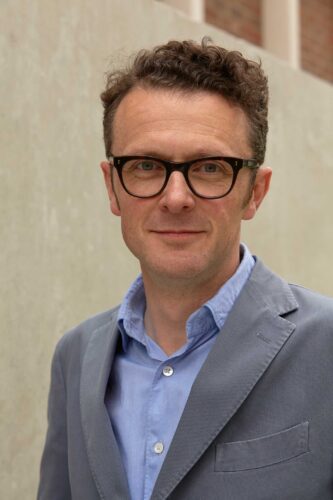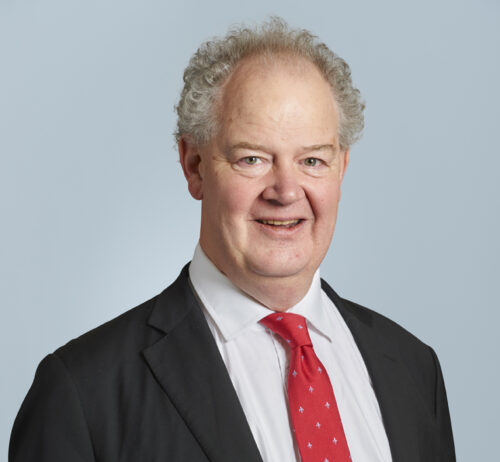Consortium News is virtually “inside” the courtroom at Old Bailey, viewing the proceedings by video-link and filed this report on Day Thirteen of Julian Assange’s resumed extradition hearing.
By Joe Lauria
Special to Consortium News
9:15 am EDT: The second prosecution witness has taken the stand and under withering cross examination by defense attorney Edward Fitzgerald key parts of his story have fallen apart.
Dr. Nigel Blackwood, a forensic psychiatrist for the National Health Service, testified on direct examination by James Lewis QC that he determined Julian Assange was suffering from “moderate” depression, not severe depression as defense witness Dr. Michael Kopelman testified on Tuesday.
Blackwood said Assange was not at high risk of suicide, as Kopelman had said.
“I think there is some risk of suicide but that risk has been carefully managed in Belmarsh and the risk factors are modifiable,” Blackwood said from the stand inside Old Bailey. “He engages with treatments to manage that risk.”
“I believe he retains the capacity to resist suicide,” Blackwood testified. Lewis then went through the same prison notes he went through on Wednesday or examinations of Assange, which repeatedly showed him displaying “good eye contact, humor, alertness, a no mention of self-harm.”
On cross examination Wednesday, Fitzgerald established that a report of “no mention of self-harm” meant that Assange was not asked about it and he didn’t volunteer any sentiments about suicide to prison doctors whom he did not trust.
But Lewis went through the notes again eliciting confirmation from Blackwood based on his own four-hour examination of Assange during two meetings in March. Blackwood testified:
“He could concentrate during four hours of interview, and his gestures and posture were appropriate. He becomes animated about the political nature of his trial and his expected treatment in the U.S., and gets animated and speaks in detail in a monologue, but can be interrupted. He considers me naive about my understanding of his case. He said Kopelman did not have a political dimension to his report, so he was very keen to give me the political dimension and to exercise editorial control over my report.”
Blackwood testified that he did not find Assange to be suffering from post traumatic stress disorder, as Kopelman had testified, and that any traits of autism were on the low end of the spectrum.
He said Assange exhibited pride in saying he was able to rally other prisoners to his cause. Blackwood added that in February Assange was “found to be drinking coffee and talking with other prisoners, he was articulate and well and fit to stand trial. He was deemed not suicidal.”
Blackwood said when Assange wasn’t in the hospital wing of the prison, he was reading books and interacted with other prisoners. How he came to be put in health care isolation was a key moment in the morning’s drama.
Blackwood asserted that he was sent to the medical ward because of a video of Assange in the prison that became public in June 2019. He testified that if Assange had indeed suffered from severe depression, the prison authorities would have sent him for outside medical treatment.
That they didn’t, showed Assange was not suffering as much as Kopelman had contended, Blackwood said. “They have no interest in this process,” he said.

Joseph Farrell, Kristinn Hrafnsson, Craig Murray and Stella Moris during lunch break outside Old Bailey on Thursday (Mohamed Elmaazi)
On cross examination, Fitzgerald first elicited from Blackwood that the reason the authorities sent Assange to the medical ward, isolated from other prisoners, was because of “reputational damage” to prison officials caused by the release of the video.
Then Fitzgerald produced a prison document that said that at 2:30 pm on the day Assange was sent to the ward it was noted that he was exhibiting a risk of self harm.
Flashing anger for the first time, Fitzgerald spoke over Blackwood, demanding to know why Blackwood hadn’t put that in his report. Judge Vanessa Baraitser interjected that the witness should be allowed to finish his answer.
Blackwood said there were multiple factors for why he was sent to the medical ward, and essentially broke down to admit that Assange’s thoughts of self-harm was one of them, though he neglected to mention that in his report.
US Prison Conditions
10:15 am EDT: Fitzgerald then turned to conditions in U.S. prison and whether they were equivalent to those in Britain.
Fitzgerald: “Would it be in appropriate to put someone suffering from depression in isolation in prison?”
Blackwood: “Depressed people can be treated in isolation, but it has the potential to exacerbate mental illness. It depends on what is avaialbable to him beyond telephone calls, access to social networks.
Fitzgerald: “If he has been deprived of these things would it seriously exacerbate his condition?”
Blackwood: “It may do.”
Fitzgerald: “It clearly would.”
Blackwood: “Mr. Assange has proven himself as a very resilient man.”
Fitzgerald asked if Blackwood were aware of medical recommendations that prison isolation should be avoided in prisoners with mental health issues.
“Yes,” said Blackwood.
Fitzgerald asked if he was aware that of all suicides in U.S. prisons, 50 percent are of inmates in isolation, and only 3 to 8 percent of the total prison population is isolated.
Blackwood noted that incidents of suicide was still higher in British prisons, than in the U.S.
Fitzgerald asked: “Would it be wise to send Mr. Assange, given his condition, to be sent to isolation?”
“It depends on what the regime is in individual settings,” Blackwood responded. He said that even with Covid-19 isolation in British prisons a predicted upsurge in suicides had not happened.
Relying Only on Kromberg
“Mr. Assange will be sent to the Alexandria Detention Center (ADC), he will be confined to a small cell with no exercise or fresh air and limited communication with his lawyers and no contact with prisoners. Assuming this is correct would those conditions be damaging with Julian Assange’s psychiatric history?” Fitzgerald asked.
“Yes that may have an impact on his depressive disorder,” Blackwood admitted.
After Fitzgerald described the Special Administrative Measures (SAMs) Assange would likely be held under he then asked if Blackwood would accept that sending Assange to Alexandria under those conditions would be psychologically damaging to Assange.
‘There is a range of approaches under SAMs and this is at the most pessimistic end,” Blackwood said. “If that pertains, it has the potential to impact his mood state. But I maintain that his mood state is manageable.”
“Even in these conditions?” Fitzgerald asked, incredulously.
“I drew on [U.S. assistant attorney Gordon] Kromberg who says in Virginia there is broad equivalency with Britain and that there is no solitary confinement in the ADC.”
“You were simply relying on Kromberg? Why are you saying there is no solitary confinement in the ADC?” Fitzgerald asked.
“Because I am drawing on Kromberg,” Blackwood said.
“Kromberg says there is no solitary in the ADC, so you just put that in your report?”
“That is what I’m drawing on,” Blackwood said.
“So you don’t think that the statement of Kromberg, a government official, which we say is incorrect, is open to question?”Fitzgerald asked. You are only taking this from Kromberg. Shouldn’t you have seen what the defense has said?”
“I relied on Kromberg and the academic literature on what happens in U.S. prisons. There may be stuff that isn’t covered, but there is broad equivalence.”
Fitzgerald said: “The witness keeps saying there are many varieties of SAMS but evidence before the court says that once under SAMs all prisoners are subjected to the same regime.”
Acting the Role of the Judge
Fitzgerald continued: “Against the background of that bold assertion that there is no solitary confinement in the ADC, you then say that given Mr. Assange’s mental health condition it would not be unjust to extradite him. That’s nonsense.”
“I’m saying his current mood does not—,” Blackwood started.
“It is not your business to decide that, whether extradition is just or unjust, that is up to the judge,” said Fitzgerald, cutting him off.
“Of course,” murmured Blackwood.
“So why did you enter something into your report that is up to the judge?”
“It’s up to the judge of course.”
Fitzgerald then drew out the fact that Blackwood had never visited the ADC or any federal facility, having only been to a state prison in Connecticut and a jail in Newport, Rhode Island.
His Physical State
Next up was defense witness Dr. Sondra Crosby, an internist in Massachusetts. Crosby visited Assange five times, three times in the Ecuador embassy, first in October 2017, and twice in Belmarsh, the last time in January this year. Each time she saw him he had markedly deteriorated.
Crosby testified on an array of physical ailments, the details of which Consortium News has agreed to withhold to protect Assange’s medical privacy.
Some of his impairments were already been made known, such as a lung ailment and an infected tooth. She said that she was unable to convince Assange to leave the embassy for medical treatment.
Crosby testified that Assange was confined to the embassy. On cross examination, Lewis invoked a common anti-Assange meme, that he could leave anytime he wanted to.
Crosby said this was a “complex” question and she compared Assange’s situation in the embassy to someone “who is being chased with an axe or a gun and locks himself in a room for safety.”
Indeed, the British foreign secretary said that Assange was free to leave whenever he wanted and the British police would be there, welcoming him with open arms.
Before he was arrested and dragged out of the embassy, Assange and his lawyers repeatedly said they feared his arrest would ultimately lead to extradition to the United States. It was ridiculed at the time, but we are about to end the second week of extradition proceedings to the United States.
Crosby also testified about Assange’s mental state, which was challenged by Lewis as she is an internist. But Crosby said part of her medical work with refugees and asylum seekers entailed psychological conditions and that she had numerous times testified to courts on psychological matters.
Crosby said Assange was at high risk of suicide and discussed it frequently with Assange during her visits. In perhaps the most disturbing moment of testimony, she described how Assange told her he studied the video of a Croatian, Slobodan Praljak, on trial for war crimes at the International Criminal Court, killing himself in 2017 in a courtroom after taking potassium cyanide.
Only a very hardened person in the courtroom would be unmoved by Crosby’s testimony.
John Young of Cryptome
The day in court ended with the testimony of John Young, founder and operator of Cryptome.com being read to the court by Fitzgerald. Young said that he published the unredacted diplomatic cables containing informants names a day before WikiLeaks did on Sept. 1, 2011. He said the files are still accessible on his site. Young said he is a U.S. citizen.
“Since my publication on Cryptome.org of the unredacted diplomatic cables, no U.S. law enforcement authority has notified me that this publication of the cables is illegal, consists or contributes to a crime in any way, nor have they asked for them to be removed.,” Young testified.
The hearing continues.
Please Contribute to Consortium News’
25th Anniversary Fall Fund Drive
Donate securely with
Click on ‘Return to PayPal’ here.
Or securely by credit card or check by clicking the red button:







This is the same powerful British Establishment that smeared and hounded Jeremy Corbyn. On the surface these seem like different cases. But both assaults have been to suppress information.
When I was doing emergency psych assessments it was standard procedure to ASK depressed patients if they were thinking of harming themselves. I cannot imagine writing up a patient’s chart and not making it absolutely clear that I had asked that question, and what the patient had replied.
From the report:
> On cross examination Wednesday, Fitzgerald established that a report of “no mention of self-harm” meant that Assange was not asked about it and he didn’t volunteer any sentiments about suicide to prison doctors whom he did not trust. . . .
> Blackwood: “Mr. Assange has proven himself as a very resilient man.”
Rather than very resilient, Julian is clearly an extraordinarily brave person, even when agonizing, which recalls mortally wounded RFK’s whispering “Is everybody OK?”.
Julian has been answering letters from prison, where he sometimes briefly mentions his profound suffering and isolation, but seems mainly concerned about others, all journalists and publishers, all the people’s freedom of speech, democracy…:
“. . . the days when I could read and speak and organise to defend myself, my ideals and my people are over until I am free! Everyone else must take my place. . . .
“It is people like you, great and small, fighting to save my life that keeps me going. We can win this! Don’t let the bastards sacrifice freedom of speech, European democracy and my life . . .
“Thank you! The suffering here is profound, but we can win this! Knowing you have my back is what gets me through!” . . .
“Knowing you are out there fighting for me keeps me alive in this profound isolation. . . .
“It’s not just me. It’s much wider. It’s all of us. It’s all journalists, and all publishers who do their job who are in danger. . . .
“Truth, ultimately, is all we have.”
— Julian Assange, letters from Belmarsh, 2019
Juan Branco, a French writer, lawyer and political activist who knows him well — Juan gave Julian his cat to fill the solitude at the embassy — says about Assange, a “completely unique character in history” who “will remain for a very long time as a reference”:
“English lawyers have almost no time with him and international lawyers have no time with him, basically. So it’s a strategy from the UK to undermine his defense and have him out of the country as soon as possible, in order to forget about this issue which has cost them a lot of media [attention] and pressure and discomfort. We are victims of this strategy. . . .
“He is one of the most intelligent people I have ever met. . . . He reveals the nature of our regimes . . .
“The conditions of his detention are sufficient to destroy a man. . . . And yet he is not destroyed. And yet he is still an active man and yet he will be able to defend himself, starting the 24th of February. So, that says a lot about who he is. . . .
“I was very surprised by how tall he was and strong — he is much more impressive when you see him in real life — and how smooth and humble he was, which was very contradictory with what I had read about him, something that surprised me a lot. . . .
“We are determined. We are neither pessimistic nor optimistic. We are fighting for a cause and whatever our chances, we will not let it go.”
— Juan Branco, WikiLeaks legal team, Jan 23, 2020
“This is not about me.
This is about you!”
— Julian Assange, Nov 5, 2019
The lawyer in me couldn’t help but catch this admission by Dr. Blackwood:
“He becomes animated about the political nature of his trial and his expected treatment in the U.S….”
Right there, Blackwood is stating that there’s a “political nature” to the trial. I dare say, there wouldn’t and couldn’t be a “political nature” to a trial if it were not a trial being performed for political reasons. And that’s grounds for not granting extradition.
Nice.
I would like to have read more in support of this, however:
“key parts of his story have fallen apart.”
I only count the one part so far, the likely intentional omission of the reason Assange was sent to the medical ward isolation. Did I miss something? (The reporting doesn’t look quite complete, so I’ll wait!)
Thanks for the reporting,
Art
There is an update coming. These are continuing live updates not the final report, which is on the way.
Of the many people I know who committed suicide, not one (of about ten) mentioned it to me in the week before executing. Of the many people I know that spoke about suicide, not one of them followed through. We can never know what is in another’s mind.
This is yet another aspect of what infuriates me about Blackwood and Lewis’ dishonest depictions of depression and suicidal tendencies.
People who *successfully* commit suicide prepare for it moreso than talk about it, which is why it is so important to monitor actions and behavior and what a person does not say, rather than what they are saying. This is incredibly elementary psychology, and if Blackwood testifies otherwise, then he is a poor psychologist.
If I was in a prison for telling the truth and had been held there for so long after talking with so many who really just didn’t care….then I would consider killing myself before I got sent directly to my tormenter because I wouldn’t want to give them the pleasure of victory. But, I wouldn’t do it.
Julian Assange I believe is a man of great resilience and the beauty is that the moment will come when he is exonerated completely. Some things are obvious. What I most look forward to for the sake of humanity is the justified retribution that will be handed out one at a time to specific individuals who caused this travesty of justice and who have been doing this sort of thing for far too long. We know. Justice remembers and justice will be delivered. You can count on that. You can take it to your grave. So be happy for that if nothing else because if justice can’t be delivered to the most obvious purveyors of hate and pain, then I reckon we will ALL just get the justice that is deserved for the pathetic human race that could not stop the twisting of truth is this modern day and age. Will anything ever change? God knows I hope so. I hope so for all the possible future generations that are yet to be and only now exist in our imagination.